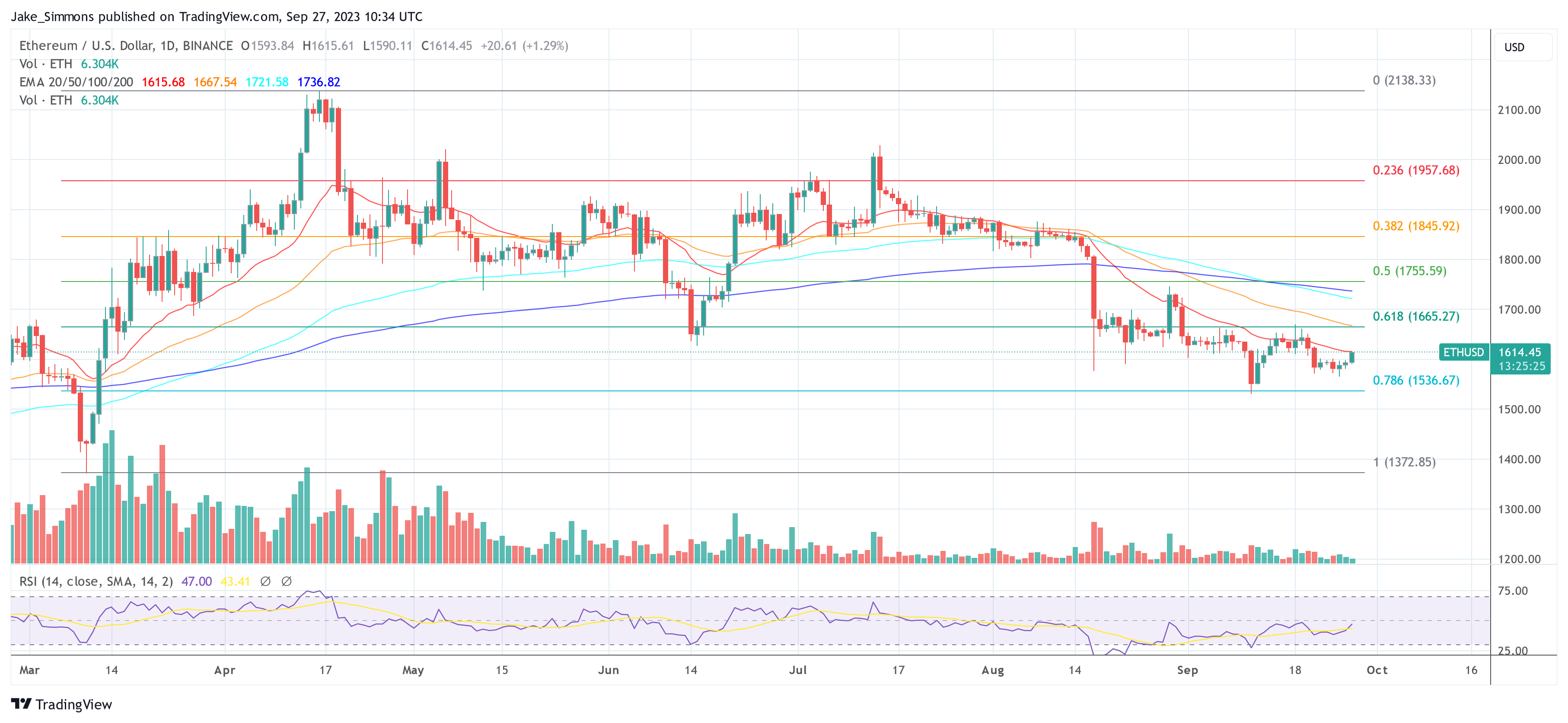[ad_1]
Current feedback by Danny Ryan, also known as the beacon chain’s mastermind, have despatched ripples by the Ethereum group. In a candid interview, Ryan referred to as out Lido and related protocols, claiming they pose a systemic risk to Ethereum’s foundational values and its core consensus mechanisms.
The crux of Ryan’s concern revolves round Lido’s development. Lido has now amassed almost one-third of all ETH staked. On the earth of consensus mechanisms, surpassing thresholds like one-third or half offers a participant important affect, doubtlessly enabling them to disrupt consensus in deadly methods. This doesn’t simply signify a possible centralization threat; it may erode Ethereum’s worth proposition as a decentralized platform.
Why Lido Is A “Systemic Menace” To Ethereum
Ryan shared a poignant reflection on the broader implications of Lido’s unchecked development: “Lido or some related protocol that short-circuits the economics and basically varieties a cartel, has its personal governance token owned by a bunch of VCs, is a systemic risk to Ethereum.” He went on to handle the group’s inaction, suggesting that their nonchalance within the face of Lido’s growth was a troubling signal for Ethereum’s dedication to decentralization.
He additional remarked that “most token allocations today are VC managed by a handful of individuals […] a shitty occasion on-chain.” Ryan additional questioned the sustainability of such centralized governance, stating the dangers related to regulators focusing on influential people or entities.
As a result of it’s only a corporatization, a centralization and a systemic risk. What occurs when a regulator realizes that 3 individuals management the vote? I acquired 3 doorways to knock on, straightforward.
Whereas Ethereum is “not excellent”, a shutdown of Lido by regulators may result in critical points for the community. “We may have a problem with the liveliness of the community. The liveness being the finality, not essentially the supply of the chain, you would make some choices, but it surely is not going to be economically last choices,” Ryan acknowledged.
If Lido persists on its trajectory with out imposing any self-limits, the Ethereum group might resort to dire measures. This might vary from socially ostracizing Lido, equivalent to making a tender fork the place non-Lido validators dismiss Lido’s attestations, resulting in a possible ETH loss from inactivity leaks.
In excessive instances, a tough fork to divest Lido’s belongings could possibly be on the desk, a transfer that Ryan signifies can be catastrophic not just for Lido stakeholders however for your complete Ethereum ecosystem. It is because it may instigate what can greatest be described as a blockchain “civil struggle.”
Why LSDs Want To Be Non-Revenue
Ryan’s phrases achieve extra weight when contextualized along with his latest article. The publish titled “Liquid Staking Derivatives can’t safely exceed consensus thresholds” delves deep into the perils of Liquid Staking Derivatives (LSD) like Lido. It cautions concerning the cartelization of block area when such platforms surpass crucial consensus thresholds.
The article signifies that these platforms, whereas not inherently flawed, encounter inherent dangers once they exceed such consensus limits. He elucidates on the potential penalties like outsized earnings in comparison with non-pooled capital on account of coordinated MEV extraction, block-timing manipulation, and censorship.
Moreover, Ryan’s article presents a binary alternative for LSD protocols on their governance construction. Both they permit governance to resolve node operators, introducing main dangers together with cartel behaviors or they resort to financial and reputation-based standards, which may inadvertently result in automated cartelization.
In Ryan’s perspective, staked ETH doesn’t essentially equate to an Ethereum consumer. Due to this fact, ought to LSD protocols permit their ETH stakeholders a say of their governance, it wouldn’t essentially signify the broader Ethereum consumer base.
Ryan’s remarks, whereas alarming, come from a spot of real concern for Ethereum’s long-term well being. His name to motion is obvious: LSD merchandise like Lido ought to self-impose limits for their very own good, and people allocating capital ought to acknowledge the dangers and ideally keep away from LSDs with greater than 25% of complete staked Ether.
Ryan just isn’t the primary to level out the potential influence of Lido’s dominance. In August, X consumer Superphiz.eth warned that the protocol shouldn’t be allowed to realize extra market share. As such, the platform has been requested to impose a self-limit rule.
Nevertheless, stakeholders of the protocol, which at present instructions a 32.4% dominance of the liquid staking market, already voted towards a self-limit rule by an awesome 99.81%.
At press time, ETH traded at $1,614.

Featured picture from Shutterstock, chart from TradingView.com
[ad_2]
Source link
